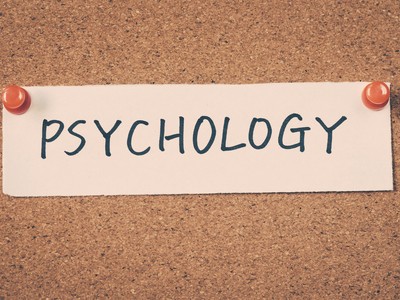
MDD Depression Psychologist Ashmore (07) 5539 9798
Isabella Whittingham Registered Psychologist Ashmore

Introduction: Sign Of Depression Psychologist Ashmore Near Me
In today's busy and requiring world, psychological health problems have actually become significantly prevalent. 2 of Depression Signs And Symptoms Psychologist Ashmore Near Me the most typical mental health disorders are anxiety and anxiety. While they may share some resemblances, it is necessary to understand the distinctions in between the two conditions in order to look for appropriate treatment and assistance. This short article aims to provide a comprehensive understanding of stress and anxiety and anxiety, their symptoms, causes, and available treatments.
Anxiety vs. Depression: Comprehending the Differences and Similarities
What is Anxiety?
Anxiety is a typical human feeling that everybody experiences from time to time. It is characterized by feelings of worry, fear, or unease. Nevertheless, when these feelings end up being excessive or relentless, it may suggest a stress and anxiety disorder.
Symptoms of Anxiety
- Excessive worrying
- Restlessness
- Trouble concentrating
- Irritability
- Muscle tension
- Sleep disturbances
Causes of Anxiety
Anxiety can be caused by a combination of hereditary, ecological, and psychological factors. Traumatic life occasions, chronic tension, or a household history of anxiety conditions can increase the threat of establishing a stress and anxiety disorder.
What is Depression?
Depression is a state of mind condition that impacts how an individual thinks, feels, and acts. It exceeds normal sensations of sadness or sorrow and can significantly impact day-to-day performance and quality of life.
Symptoms of Depression
- Persistent unhappiness or emptiness
- Loss of interest or satisfaction in activities
- Fatigue or low energy levels
- Changes in hunger or weight
- Difficulty sleeping or oversleeping
- Feelings of worthlessness or guilt
Causes of Depression
Depression is a complex condition with several contributing aspects. It can be triggered by hereditary predisposition, biochemical imbalances in the brain, hormone modifications, certain medical conditions, or traumatic life events.
Similarities In between Stress and anxiety and Depression
While stress and anxiety and anxiety stand out disorders, they frequently exist together and share some typical signs. Both conditions can cause feelings of uneasyness, irritation, difficulty concentrating, and sleep disturbances. Furthermore, people with anxiety or depression may experience physical symptoms such as headaches, digestion issues, or persistent pain.
Differences Between Anxiety and Depression
Emotional Symptoms
Anxiety is mainly characterized by excessive worry and worry, while anxiety is marked by persistent unhappiness and loss of interest in activities. People with stress and anxiety may feel on edge or continuously on guard, whereas those with anxiety might experience a sense of despondence or emptiness.
Physical Symptoms
While both stress and anxiety and anxiety can manifest physically, the particular symptoms differ. Stress and anxiety typically provides with symptoms such as muscle tension, racing heart, shortness of breath, and trembling. In contrast, anxiety may trigger low energy levels, modifications in cravings or weight, and sleep disturbances.
Thought Patterns
Anxiety tends to be associated with excessive rumination and overthinking. Individuals with stress and anxiety frequently have racing ideas and might struggle to control their concerns. On the other hand, depression is characterized by unfavorable thought patterns such as self-criticism, sensations of worthlessness, and a pessimistic outlook on life.
Impact on Daily Functioning
Both anxiety and depression can considerably impact daily performance; nevertheless, they do so in various methods. Anxiety can cause avoidance habits or problem focusing on jobs due to extreme concern. Anxiety typically results in reduced motivation, loss of interest in previously enjoyed activities, and problems with decision-making.
FAQs about Stress And Anxiety vs. Depression
Q: Is stress and anxiety a symptom of depression? A: While stress and anxiety can be a sign of depression for some people, it is not always the case. Stress and anxiety conditions and depression stand out mental health conditions that can coexist but likewise happen independently.
Q: Can you have both anxiety and anxiety at the very same time? A: Yes, it is possible to have both stress and anxiety and anxiety all at once. This is referred to as comorbidity, and it is relatively common for individuals with psychological health disorders.
Q: Is stress and anxiety or anxiety more common? A: Anxiety conditions are somewhat more common than depression, but both conditions are among the most typical psychological health conditions worldwide.
Q: Can stress and anxiety turn into depression? A: While anxiety can contribute to the advancement of depression in some cases, it does not always lead to anxiety. Nevertheless, chronic and untreated anxiety can increase the threat of developing depressive symptoms.
Q: Exist efficient treatments for anxiety and depression? A: Yes, there are numerous evidence-based treatments offered for stress and anxiety and depression. These might consist of therapy (such as cognitive-behavioral treatment), medication, way of life changes, and self-help strategies.
Q: The length of time does stress and anxiety or depression last? A: The duration of anxiety or anxiety can differ widely depending on specific factors such as treatment adherence, support systems, and underlying causes. Some individuals may experience acute episodes that resolve within a few weeks or months, while others might have chronic conditions that require ongoing management.
Is Anxiety A Mood Disorder Psychologist Ashmore
Separation Depression Psychologist Ashmore Near Me
Isabella Whittingham Registered Psychologist Gold Coast
Surfers Paradise Chiropractic Centre-Dr. Bruce Whittingham
12 Thomas Drive, Surfers Paradise QLD 4217
(07) 5539 9798
https://surfersparadisechiropractic.com.au
Nervousness Symptoms Psychologist Ashmore Near Me